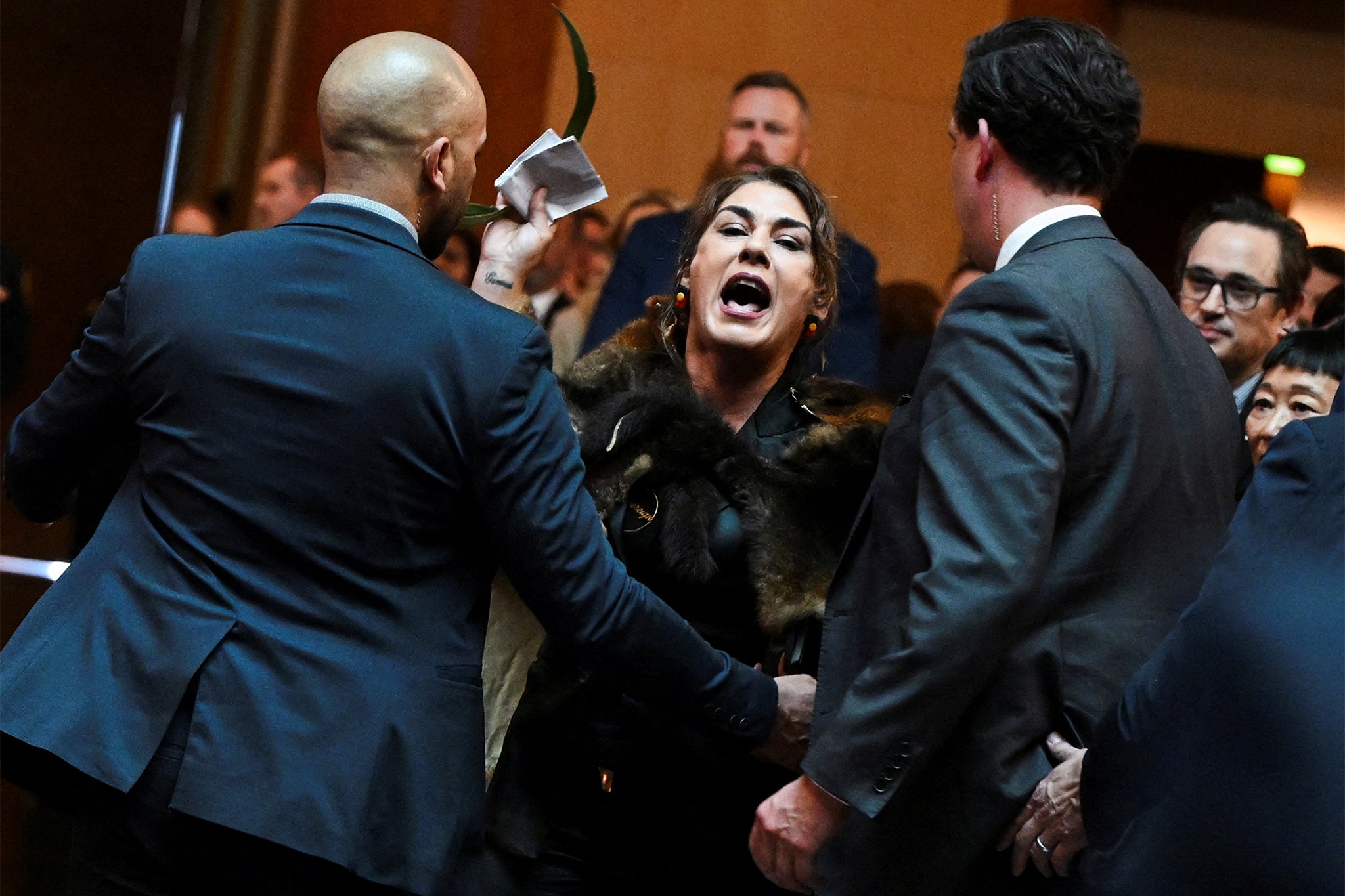King Charles urged Australia to take a leading role in the fight against climate change in his Parliament House speech before an Indigenous senator dramatically accused the royal family of genocide.
The monarch, 75, paid tribute to the “traditional owners of the lands” who have “loved and cared for this continent for 65,000 years” as he spoke in the capital of Canberra.
He stressed the importance of Australia’s role in the global fight against climate change and noted the ability of the Commonwealth to be a trailblazer of nations in this area.
However, after leaving the podium, Indigenous politician Lidia Thorpe, 51, heckled the monarch and shouted: “You destroyed our land. Give us a treaty. We want a treaty in this country. You are a genocidalist. This is not your land.”
Ms Thorpe was subsequently escorted away by security. The remainder of the event proceeded as planned with no mention of the interruption.
A longstanding advocate for the rights of Indigenous people, Ms Thorpe, though an environmentalist like the King, ultimately left the Australian Greens in 2023 following clashes over the proposed introduction of a treaty advocating for the rights of Indigenous people.

Beginning his speech, Charles reflected on the changes he has seen in Australia over almost six decades, telling the dignitaries and politicians present that the months he spent studying there in 1966 made him into a better, more rounded individual.
“It is worth reflecting that Australia's unique character has endured and also evolved and that Australia has become a stronger nation as a result of becoming one of the most multicultural on Earth,” he said.
The King asserted that Australia’s character “is hardly more vivid” than when it is “tested by disaster” and cited several examples of devastating natural events that have taken place in recent years.
He said he is always “deeply impressed” by the “extraordinary bravery and resilience” of the Australian people for their willingness to “battle on” before acknowledging the role that climate change is playing in these events.
“This is why Australia's international leadership on global initiatives to protect our climate and biodiversity is of such absolute and critical importance,” he said.
Citing the country’s ability to be a leader in this area, Charles pointed out the ways in which this can and already be done.
“Australia has all of the natural ingredients to create a more sustainable, regenerative way of living, by harnessing the power with which nature has endowed the nation,” he said. “Whether it be wind or its famous sunshine, Australia is tracking the path towards a better and safer future.”
He added: “The Commonwealth spans six continents, and as a group, has the size and influence to play a significant role on the global stage, while being small enough to nurture personal relationships, it has the diversity to understand the world's problems and the sheer brain power and resolve to formulate practical solutions.
“It is in all our interests to be good stewards of the world and good ancestors to those who come after us because we are all connected – both as a global community and with all that sustains life.
“That is the timeless wisdom of indigenous people throughout the entire world.”
The subject of Australia’s continued membership of the Commonwealth has been a hotly debated topic ahead of Charles’s first visit to the country as king.
Several protests have also been planned by Republicans, with some calling for the monarch’s ongoing tour of Australia to be his “farewell to Oz” tour.
This sentiment was echoed by Ms Thorpe, who issued a statement denouncing the King ahead of her headline-making protest on his second day of official engagements.

She used it as an opportunity to call for a treaty between Aboriginal and non-Aboriginal Australians, which she believes will help to put right the historical wrongs that she blames the monarchy for.
“There’s unfinished business that we need to resolve before this country can become a republic. This must happen through Treaty,” Thorpe said.
“We can move towards a Treaty Republic now. The two processes are not opposed, they’re complimentary.”







